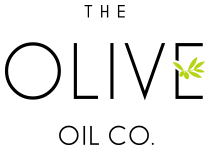Myth: You should always look for ‘first cold pressed’ extra virgin olive oil
This is a marketing term. Most olive oil is not extracted by pressing but rather by using a mechanical process called centrifugation. A centrifuge extraction system, also called a horizontal decanter, uses the centrifugal force of rotation to separate the oil from the olive paste (including flesh, skin, and pits) and water.
Myth: ‘Second pressed’ refined olive oil is even better than ‘first cold pressed’
Much like the myth of ‘first cold pressed’ extra virgin olive oil, there is not a second press in mechanical production of olive oil. Refined olive oil goes through a completely different chemical process from extra virgin olive oil.
Myth: Light olive oil has less fat and calories
This myth is too good to be true. The “lightness” does not refer to fat and calories, but rather the flavor, taste and color of the oil due to a refining process that extra virgin olive oils do NOT undergo.
Myth: Cloudy olive oil is healthier
Cloudiness in olive oil is caused by particles of olives that stick around in the oil after processing. The cloudiness does not equate to added nutrition. Something to keep in mind: Cloudy oils usually have a shorter shelf life than their more transparent counterparts.
Myth: Color is an indicator of quality
The color of the oil is not an indicator of quality. Rather, color indicates things about the oil like the variety and ripeness of the olives as well as the climate in which the olives were grown.
Myth: You should refrigerate extra virgin olive oil
Spoiler alert! You can refrigerate extra virgin olive oil. But, you should keep in mind that frequent thawing can reduce the shelf life of the oil. It’s recommended that olive oil be stored in a dark bottle, in a cool and dark place. Stored properly and unopened, olive oil has a one-and-a-half- to two-year shelf life. Once opened, it should be used within 6 months.
Myth: Olive oil has a low smoke point
You may have heard that olive oil shouldn’t be heated or used for frying because of its low smoke point – the temperature at which oil starts to smoke. This myth is misleading. The smoke point of olive oil depends on the quality and freshness of the oil. Higher quality and fresher oils will have higher smoke points, around 400°F.
Myth: Heating olive oil makes trans fats
Heating olive oil in your home kitchen cannot make trans fats. Trans fats occur during hydrogenation – an industrial process where any oil can be turned into a solid fat with extreme high heat and pressure.
Myth: Cooking olive oil makes free radicals
Free radicals are formed when something gets heated and goes under stress, for example, our body makes free radicals when we exercise. The good-for-us antioxidants that are naturally present in high quality extra virgin olive oil combat free radical (potential carcinogens) generations during cooking and in our body, after consumption.
